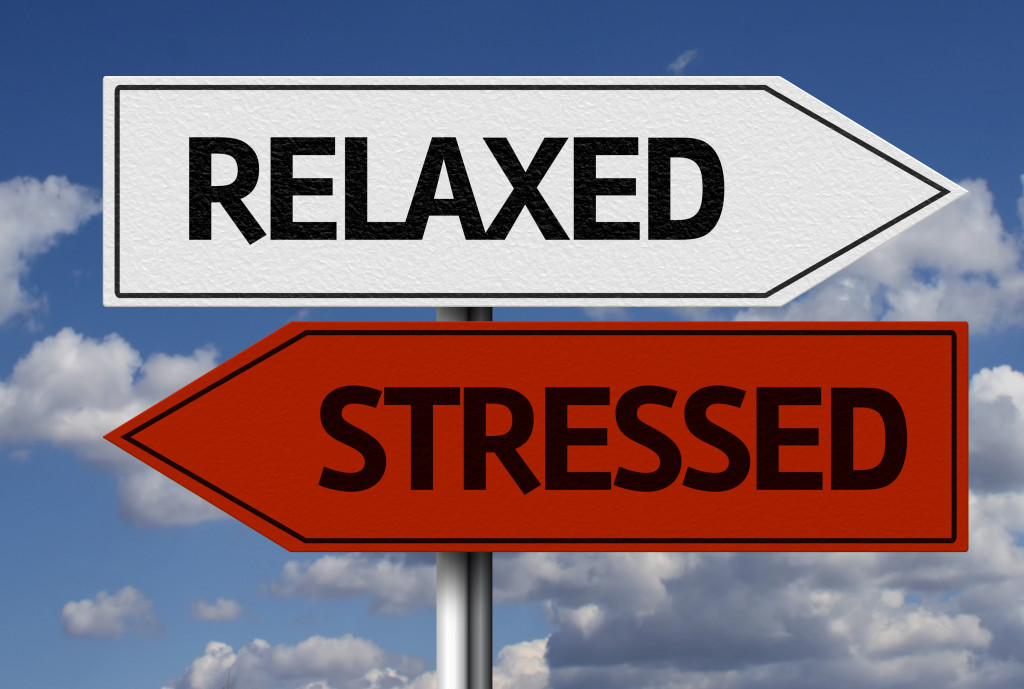Stress is a normal part of life. You’re supposed to feel it during certain situations because stress helps you grow or adjust to unfavorable circumstances. It’s basically an instinct, a.k.a. the “fight or flight” response. That response is the powerful release of neurochemicals and hormones that prepare you for action.
But how you respond to stress isn’t always normal or healthy, and so is the severity and frequency of your stress. Unmanageable stress can be detrimental to your mental and physical well-being. It can urge you to cope using self-destructive ways so that you distract yourself or “escape” from the feeling.
Stress is totally preventable and treatable, so no one should endure it alone. But sadly, many people think the cure for it is just distraction. If you’ve been stressed out lately and think that you might be coping poorly, below are the signs of negative stress responses:
1. Excessive Drinking or Substance Abuse
Allowing yourself an occasional glass of wine or pint of beer to unwind isn’t unhealthy. You’re still on the clear if your alcohol consumption is under your control. But if you start binge drinking, chain-smoking, or using drugs as a form of escapism, it’s time to reconsider your actions. Those behaviors can lead you to addiction or alcoholism, or even early death.
If you find yourself falling into those habits helplessly, reach out to a positive support system, like your primary care physician or mental health professional. Work through this issue as early as you can, because hitting rock-bottom will make the battle harder to win.
2. Turning to Excessive Junk Food for Comfort
Many stressed-out people indulge themselves in junk food because they believe they deserve the treat. But this craving is the work of a stress hormone called cortisol. It seeks to activate the reward system of your brain, and junk food can do that instantly.
But instant gratification doesn’t lead to genuine health or long-term happiness. In fact, excessive junk food can stress you out even more after its initial effects wear off. Plus, relying on any type of food as a stress reliever can increase your risk for an eating disorder.
So no matter how bad your cravings get, try to curb them. De-stress by making healthy recipes instead, and your body will thank you for it.
3. Oversleeping or Not Sleeping Enough
Sleeping for 12 hours or so may sound like paradise, but if your stress doesn’t go away after waking up, then it’s not helping you at all. Likewise, depriving yourself of sleep to cram more work won’t necessarily decrease your stress, especially if you depend on too much caffeine.
Sleep may be good for the body, but it doesn’t solve problems. If your stress is caused by something that you need to address, explore healthier coping mechanisms so that you can find the energy to face it.
4. Retail Therapy
This is comparable to turning to food. Many stressed-out people also think they deserve to go on a shopping spree. But though retail therapy can lift your mood, there must be limits.
Shopping to deal with stress rather than to occasionally treat yourself can be dangerous. It can impact your finances, which can stress you out even more. So before spending again, consider if it’s really necessary to do so, or if you’re just escaping from stress again.
5. Punishing Yourself
Engaging in negative self-talk, starving yourself, or depriving yourself of any good feeling will never be healthy. It doesn’t make you tougher. It may gain you a little control, but you don’t really need that, because you’re more in control of your life than you think.
Treatments for Stress

Speaking of control, getting treatment is one thing that only you can decide. Though other people can weigh in their own opinions about it, at the end of the day, it’s totally up to you to get it or not.
But for the sake of your stressed-out mind, try to decide on it with only a few people to help you, specifically people you trust and have your best interests at heart. Don’t turn to the ones who encouraged you to use poor coping mechanisms. Chances are they won’t be supportive of treatments that actually help.
As for your treatment options, you have several. You can try the esteemed dialectical behavioral therapy, which helps you become more mindful. It’s particularly beneficial for stress because it teaches you how to slow down and focus on using healthy coping skills.
Individual counseling can also help, especially if you’re already falling into alcoholism or drug abuse. And of course, don’t forget your physical health. Do little changes in your lifestyle, and incorporate stress-reducing activities in your routine, like exercising, deep breathing, aromatherapy, or spending time with a pet.
While helping yourself heal, surround yourself with positive and supportive people. Stress can be extremely serious, and it can tempt you to fall back into unhealthy coping mechanisms. So avoid enduring it alone.
